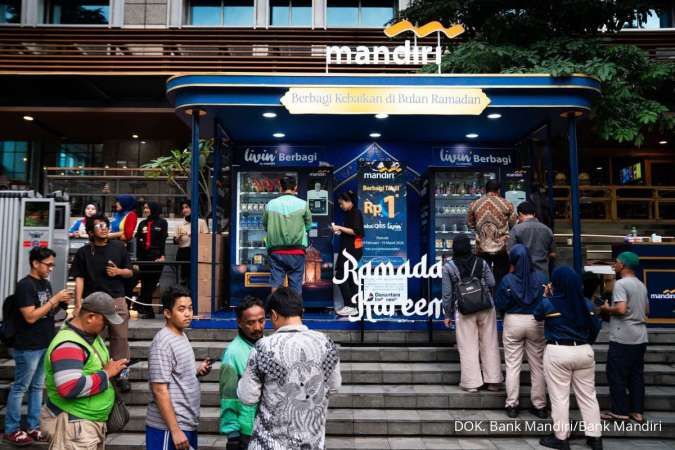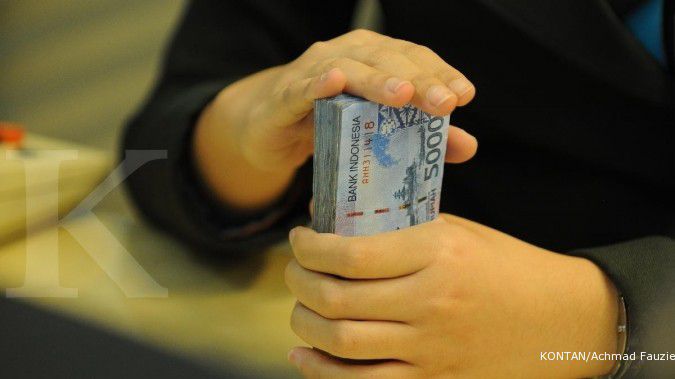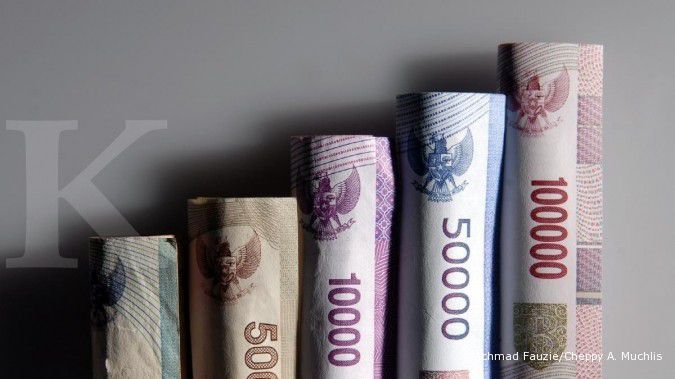JAKARTA. Bank Indonesia (BI) says it will implement a system allowing banks to set a time to quote rupiah spot rates against the US dollar for foreign exchange transactions to better shield the rupiah from speculation. The central bank is currently in talks with around 30 banks that regularly manage foreign exchange-based transactions on the system, which will be used as the local reference for rupiah quotes, BI Deputy Governor Halim Alamsyah said. “Bank Indonesia has discussed this with the banks that will make the quotes, which will be used by our own banks,” Halim told reporters on Thursday. The quotes would take the form of spot rates that could subsequently be used as a benchmark for forwards and would use a mechanism that would resemble that used in setting the Jakarta interbank offered rate (JIBOR), the deputy governor said. As rupiah rates against foreign currencies are typically adjusted on a second-by-second basis, the quote system would allow banks to use preset, unchanged rate for their foreign exchange (forex) transactions. The banks that will use the system are expected to agree to use a rupiah rate set at a specific time by a specific financial website. “For example, certain banks might agree on 10 a.m. and Bloomberg — then they will have their rupiah spot rate set according to what was published on that specific website at that time,” BI spokesperson Difi Johansyah said. Difi that the system would prevent traders from speculating on different quotes, ultimately supporting rupiah stability. “Before, we had bank A and bank B, each with different quotes for the rupiah against the dollar. In this situation, a person could earn a profit by buying [dollars] from one bank and selling them to the other.” “Under the new system, the two banks would agree to use a certain rupiah quote, so the person has no room for profit taking,” the spokesman said. Representatives from local banks agreed with BI, saying that the system could provide a more credible benchmark for the rupiah. “This policy is good, as we will be able to provide the ‘real’ rupiah quote price to the market, not only a ‘tailor-made’ price. I heard that many offshore banks deliberately offer a wide spread of rupiah quotes,” Bank Central Asia (BCA) president director Jahja Setiaatmadja said on Thursday. The move by BI came after internal reviews by banks in Singapore reportedly found proof that traders there had colluded to deliberately weaken non-deliverable forwards (NDF) for emerging economies’ currencies, including the rupiah. Analysts have said that such collusion might be behind recent widening gaps between rupiah quotes offered by local and offshore banks, a situation that has created bearish perceptions of the rupiah. Meanwhile, rupiah one-month non-deliverable forwards rose 0.05 percent to 9,715 per dollar, data compiled by Bloomberg showed. They reached a three-year low of 9,985 on Jan. 10 and Jan. 11. The contracts traded at a 0.2 percent discount to the spot rate, which strengthened 0.15 percent to 9,695, prices from local banks showed. A daily fix used to settle the derivatives was set at 9,727 today by the Association of Banks in Singapore, compared with 9,684 Thursday. (sat/The Jakarta Post)
BI introduces new quote system
JAKARTA. Bank Indonesia (BI) says it will implement a system allowing banks to set a time to quote rupiah spot rates against the US dollar for foreign exchange transactions to better shield the rupiah from speculation. The central bank is currently in talks with around 30 banks that regularly manage foreign exchange-based transactions on the system, which will be used as the local reference for rupiah quotes, BI Deputy Governor Halim Alamsyah said. “Bank Indonesia has discussed this with the banks that will make the quotes, which will be used by our own banks,” Halim told reporters on Thursday. The quotes would take the form of spot rates that could subsequently be used as a benchmark for forwards and would use a mechanism that would resemble that used in setting the Jakarta interbank offered rate (JIBOR), the deputy governor said. As rupiah rates against foreign currencies are typically adjusted on a second-by-second basis, the quote system would allow banks to use preset, unchanged rate for their foreign exchange (forex) transactions. The banks that will use the system are expected to agree to use a rupiah rate set at a specific time by a specific financial website. “For example, certain banks might agree on 10 a.m. and Bloomberg — then they will have their rupiah spot rate set according to what was published on that specific website at that time,” BI spokesperson Difi Johansyah said. Difi that the system would prevent traders from speculating on different quotes, ultimately supporting rupiah stability. “Before, we had bank A and bank B, each with different quotes for the rupiah against the dollar. In this situation, a person could earn a profit by buying [dollars] from one bank and selling them to the other.” “Under the new system, the two banks would agree to use a certain rupiah quote, so the person has no room for profit taking,” the spokesman said. Representatives from local banks agreed with BI, saying that the system could provide a more credible benchmark for the rupiah. “This policy is good, as we will be able to provide the ‘real’ rupiah quote price to the market, not only a ‘tailor-made’ price. I heard that many offshore banks deliberately offer a wide spread of rupiah quotes,” Bank Central Asia (BCA) president director Jahja Setiaatmadja said on Thursday. The move by BI came after internal reviews by banks in Singapore reportedly found proof that traders there had colluded to deliberately weaken non-deliverable forwards (NDF) for emerging economies’ currencies, including the rupiah. Analysts have said that such collusion might be behind recent widening gaps between rupiah quotes offered by local and offshore banks, a situation that has created bearish perceptions of the rupiah. Meanwhile, rupiah one-month non-deliverable forwards rose 0.05 percent to 9,715 per dollar, data compiled by Bloomberg showed. They reached a three-year low of 9,985 on Jan. 10 and Jan. 11. The contracts traded at a 0.2 percent discount to the spot rate, which strengthened 0.15 percent to 9,695, prices from local banks showed. A daily fix used to settle the derivatives was set at 9,727 today by the Association of Banks in Singapore, compared with 9,684 Thursday. (sat/The Jakarta Post)





